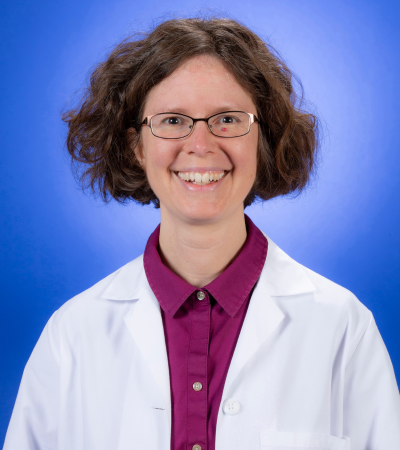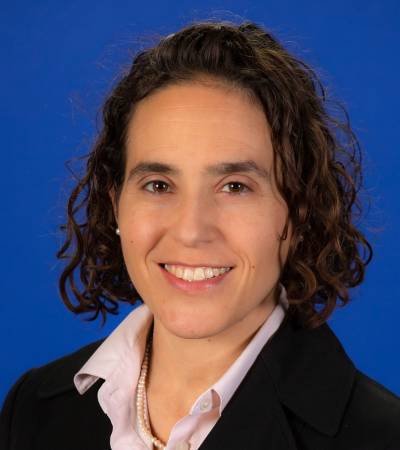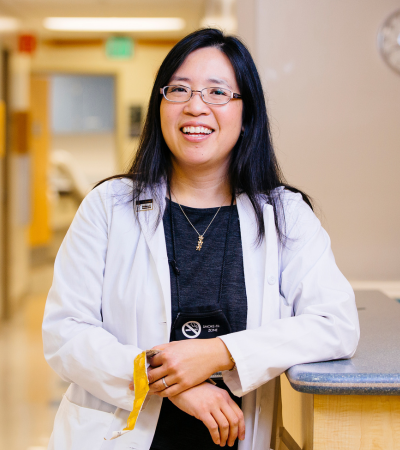Women leading the way in healthcare research
September 3, 2024
September marks Women in Medicine Month, an annual event celebrating the significant contributions of women in the healthcare field. In honor of this occasion, we spotlight three exceptional women working with the UC Davis Center for Healthcare Policy and Research (CHPR). Each of them excels as both physicians and researchers, serving as principal investigators on grants at CHPR. Their outstanding work exemplifies the vital role women play in advancing healthcare.
Michelle Dossett, M.D., Ph.D., M.P.H.
Associate Professor in Residence, Department of Internal Medicine
What is your favorite part of being a physician?
Connecting with patients and helping them to make positive changes in their lives to improve their health.
How does your service as a physician inform your work as a researcher?

I study both patient-physician interactions and interventions to improve physician well-being. As an integrative medicine physician, patients often share with me their experiences with other physicians and frustrations with the medical system generally and how their experiences with integrative providers are different. I also hear from my primary care colleagues how frustrated they are with a medical system that doesn’t allow them to deliver the kind of care that they want to. I reflect a lot on how we could improve the interaction in the conventional medical setting and what kinds of data we need in order to change policy and systemic drivers of care to improve the experience for both patients and physicians.
What advice would you share with other women who might be interested working as both a healthcare provider and a researcher?
Find good, supportive mentors and sponsors. Stay focused, but also be open to opportunities that align with your interests and career goals. Last but not least, be sure to attend to your own well-being. There will be lots of demands on your time and you will be a better physician and researcher if you take care of yourself.
Na’amah Razon, M.D., Ph.D.
Assistant Professor, Department of Family and Community Medicine
What is your favorite part of being a physician?
Being a physician requires deep listening. It’s an honor to be part of peoples’ lives, to learn their personal histories and aspirations, and support their journeys to better health.

How does your service as a physician inform your work as a researcher?
My research and clinical practice are intimately tied. My research focuses on the ways social context shapes health. These issues come up each time I am in clinic: when individuals miss appointments because they don’t have a ride to clinic or lack childcare or can’t get time off work. I find great meaning in caring for people on the individual level, but my research aims to address the structural factors that make practicing medicine and caring for patients challenging at times because of our disjointed and inequitable healthcare system. Moving between these different scales helps me link the individual challenges that patients are navigating to the systemic challenges that need upstream interventions and research.
What advice would you share with other women who might be interested working as both a healthcare provider and a researcher?
There are fundamental questions within our society and healthcare system that we need more individuals with clinical and research training to advance knowledge that centers equity and comprehensive health. As a physician-anthropologist, I am often the only social scientist in clinician-investigator spaces as our research institutions have largely focused on biological underpinnings of health and disease. Yet social sciences bring a perspective crucial to guide our health care system whether in education, clinical practice, or research. My goal is to ensure that the foundation of healthcare—patient perspectives and primary care —are included in setting research and clinical agendas. There are many days that I feel like I have two (or three!) jobs, but on days when my different hats align and inform each other—I feel incredibly fortunate, and I hope more individuals join this career path.
Elisa K. Tong, M.D., M.A.
Professor, Department of Internal Medicine
Medical Director, Stop Tobacco Program, UC Davis Comprehensive Cancer Center
What is your favorite part of being a physician?
As a general internist, I enjoy listening to people’s stories and how it relates to their health. I also like connecting pieces of information to understand what are possible diagnoses and treatment scenarios.

How does your service as a physician inform your work as a researcher?
It has helped me understand health services delivery and brought me into implementation science. With the electronic health record, I got involved with connecting the 5 UC health systems with the state quitline. This led to us at UCD joining the NCI Cancer Center Cessation Initiative to integrate tobacco treatment into cancer care. Now we are working on lung cancer screening, as a quality metric and health care delivery.
What advice would you share with other women who might be interested working as both a healthcare provider and a researcher?
It’s so important to network and seek mentors who can support your growth and development. Mentors can help in so many ways, whether or not it’s a long-term relationship. I always appreciate it when someone reaches out to me because I’ve been in that position looking for help and guidance…it’s important to pay it forward.
